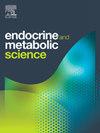癌症、氘和肠道微生物:一个新的视角
Q3 Medicine
引用次数: 0
摘要
氘是氢的一种天然同位素,含有一个中子和一个质子,这使得它的质量是氢的两倍。在本文中,我们提出了一个理论论点,即人体代谢努力使线粒体水中的氘量最小化,因为它会导致ATP酶泵的口吃,引入过多的活性氧和减少ATP的产生。肠道微生物产生的氢气在氘中耗尽了80% (deupleted)。这种气体被循环成有机物质,为宿主提供缺乏的营养物质,如醋酸盐、丁酸盐和胆碱。线粒体功能障碍与许多慢性疾病有关,最明显的是癌症。脱氢酶通过质子隧穿,通常具有较高的氘动力学同位素效应(KIE),它们通过NADH(烟酰胺腺嘌呤二核苷酸)合成向atp酶泵提供脱氢质子。我们提出肿瘤可能是由于过量氘导致免疫细胞线粒体应激的结果,肿瘤微环境可以支持免疫细胞从线粒体功能障碍中恢复。癌细胞通过膜结合的囊泡atp酶改变蛋白质表达以支持氘隔离,并将缺乏的营养物质(主要是乳酸)释放到细胞外环境和循环中。贫氘水(DDW)已被证明可以延长癌症患者的生命。有机高脂肪饮食富含B族维生素,尤其是烟酸、核黄素和叶酸,再加上天然益生元和益生菌,有助于维持氘体内平衡,并可能预防癌症。本文章由计算机程序翻译,如有差异,请以英文原文为准。

Cancer, deuterium, and gut microbes: A novel perspective
Deuterium is a natural isotope of hydrogen, containing a neutron as well as a proton, which makes it twice as heavy as hydrogen. In this paper, we develop a theoretical argument that human metabolism strives to minimize the amount of deuterium in mitochondrial water, because it causes a stutter in ATPase pumps, introducing excess reactive oxygen species and reduced ATP production. Gut microbes produce hydrogen gas that is 80 % depleted in deuterium (deupleted). This gas is recycled into organic matter that supplies deupleted nutrients to the host, such as acetate, butyrate, and choline. Mitochondrial dysfunction is associated with many chronic diseases, most notably, cancer. Dehydrogenases, through proton tunneling, typically have a high deuterium kinetic isotope effect (KIE), and they supply deupleted protons to the ATPase pumps via NADH (nicotinamide adenine dinucleotide) synthesis. We propose that a tumor may arise as a consequence of mitochondrial stress in immune cells due to excess deuterium, and that the tumor microenvironment can support immune cell recovery from mitochondrial dysfunction. Cancer cells alter protein expression to support deuterium sequestration through membrane-bound vesicular ATPase, and they release deupleted nutrients, mainly lactate, into the extracellular milieu and the circulation. Deuterium depleted water (DDW) has been shown to prolong life in cancer patients. An organic high fat diet rich in B vitamins, especially niacin, riboflavin, and folate, augmented with natural prebiotics and probiotics, supports deuterium homeostasis and likely protects from cancer.
求助全文
通过发布文献求助,成功后即可免费获取论文全文。
去求助
来源期刊

Endocrine and Metabolic Science
Medicine-Endocrinology, Diabetes and Metabolism
CiteScore
2.80
自引率
0.00%
发文量
4
审稿时长
84 days
 求助内容:
求助内容: 应助结果提醒方式:
应助结果提醒方式:


